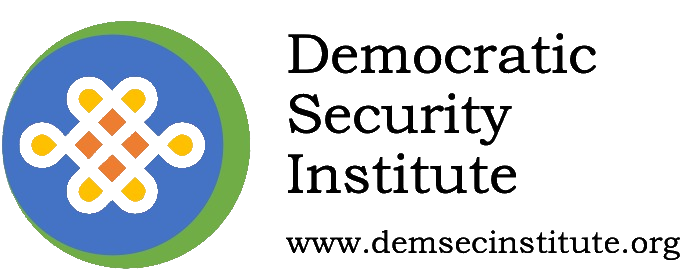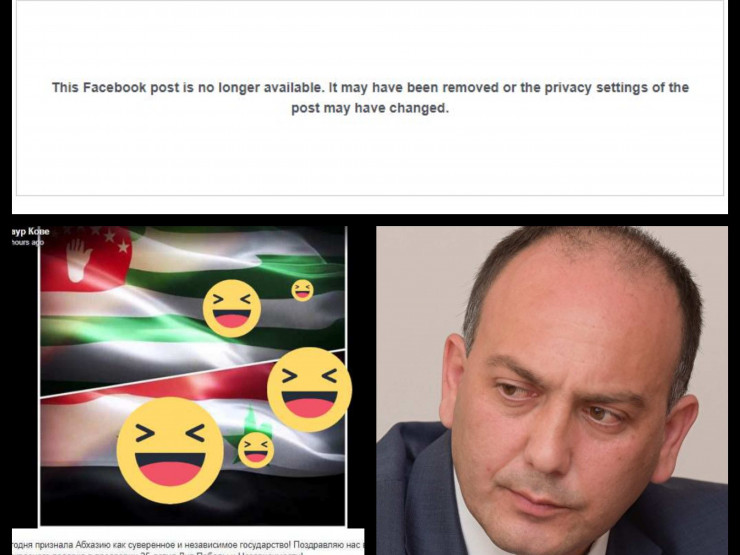By Ann Tsurtsumia-Zurabashvili
Being primarily an issue of foreign policy, the local dimension of the counter-recognition policy has remained rather overlooked. How ordinary Georgian citizens react to new external contacts of Abkhazia might be meaningless for the big picture, but it sheds light to the sentiments of societies living on both sides of the division line.
Just months before Abkhazia would celebrate a decade of recognition, news that Syria recognized Abkhazia hit the headlines in Georgian media. Damascus’ move came after nearly seven years break since either Sukhumi or Tskhinvali had secured their last UN member recognition, increasing the significance of the event.
The Russian Federation recognized the independence of Abkhazia and South Ossetia in August 2008, in the aftermath of its brief war with Georgia. Nicaragua, Venezuela, Nauru, Vanuatu and Tuvalu followed suit. The Russian-sponsored process, however, stalled in 2011, with Vanuatu and Tuvalu denouncing their recognitions by establishing diplomatic ties with Georgia.
Since then, the two separatist territories’ recognition process has been stuck in neutral. But as the Assad regime has shifted from Russian ally to client, Damascus was on the alert radar for Georgian diplomats. Being in no good terms with the US and courting the Russian president, Syria was a fertile ground for Moscow to seek new recognitions.
And as usual diplomatic practice goes, once the news was confirmed, Georgia immediately cut diplomatic ties with Syria, the international community condemned the decision and expressed support towards the territorial integrity of Georgia. At the domestic level, however, this event took an unexpected turn.
Daur Kove, the de facto Abkhaz foreign minister was first to break the news. “Congratulations to each of us! We could not think of any better present on the 25th anniversary of our victory and independence!” he wrote in a Facebook post on May 29, 2018.
Kove’s Facebook post triggered outcry among Georgians. More than ten thousand Georgians took to Facebook and reacted to the announcement with HAHA emotions, apparently to demonstrate how meaningless the event was. As a result of this rather concerted action, the Abkhaz minister was forced to put an end to his celebration on social media.
This was not the only time the HAHA emotion was “weaponized” by Georgian Facebook users. Shortly after the Kove attack, the HAHA campaign later targeted the photo of the Abkhaz president, Raul Khajimba, attending the World Cup in Russia together with South Ossetia’s de facto President, Anatoly Bibilov. As was the case with Kove’s post, Khajimba’s photo from the game with Vladimir Putin also disappeared from Facebook, as soon as he realized that thousands of users bombed the photo with the HAHA reaction.
Interestingly, social media has not worked worked well for the Abkhaz. In 2017, Abkhaz news agency Apsnypress released information, claiming that the head of Sukhumi administration had signed a memorandum with a city in Italy. However, the de facto Abkhaz foreign ministry decided to leave the name of the Italian city undisclosed, citing that Georgia had previously obstructed Sukhumi’s deals with foreign towns. It did not take long for Georgian users to identify the Mayor of Santa Maria Del Cedro, Ugo Vetere, since Sukhumi did not disclose the name but had published the picture of the visit. Georgian users were quick to remind Vetere that “Abkhazia and South Ossetia is Georgia” and the Georgian Ambassador to Italy announced shortly afterwards that the memorandum would be annulled.
It seems to be obvious that after a decade of limited recognition, Abkhazia still hopes to eventually join the club of recognized nations. On the other hand, Sukhumi’s engagement with external audiences does not only cause the counter-reaction among the Georgian authorities but it also prompts certain dynamics at the domestic level. To some extent, it may indicate a need for rethinking Georgia’s foreign policy of non-recognition.

